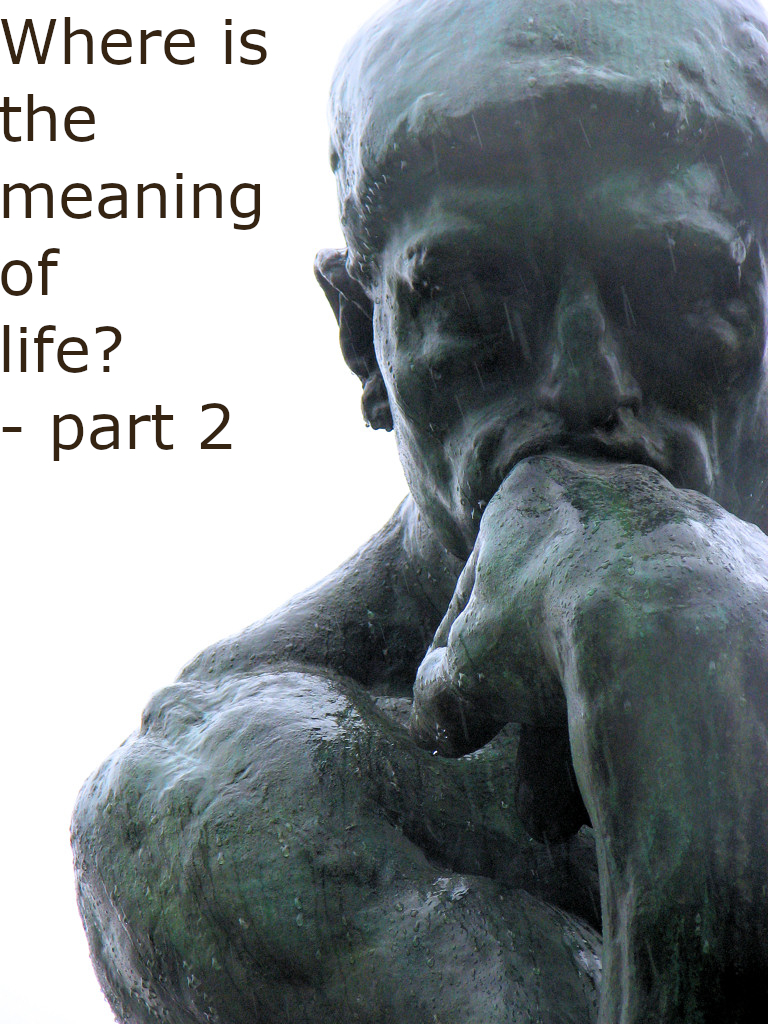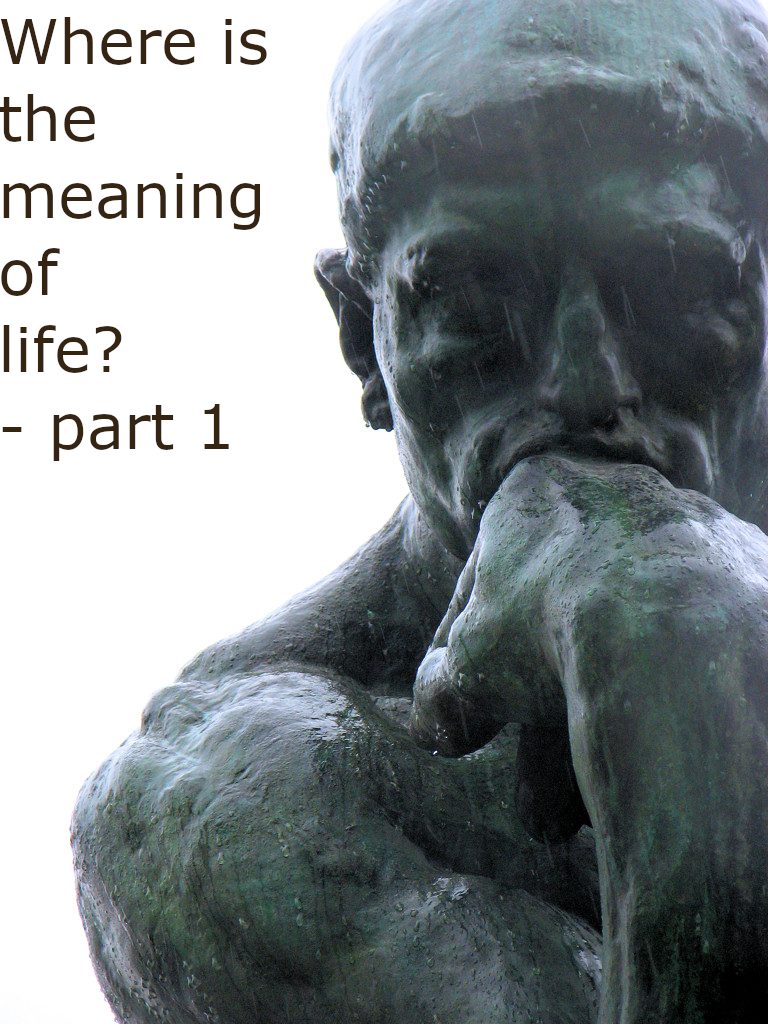
Building up from part 1, this article answers ‘where is the meaning of life’ question.
If this meaning of life still cannot be found out there in the universe of ours where is it? So where in good heavens is the meaning of life? The first answer: it is nowhere! it cannot be found on this planet or out in the wider universe. Yet people may say, ‘but it exists because I can think about the concept and communicate it to others ‘ and that right there! we must point out in that sentence, the words ‘think’ and ‘concept’.
Don’t you see? the meaning of life and other lofty notions such as divine purpose and teleology are all concepts and where do concepts come from? Here comes the second answer: all concepts are born from the mind. The mind is responsible for the meaning of life question and that is why you won’t find the meaning of life existing out there in the universe, it’s to be found nowhere because it’s a construct of the mind.
Just as obligate aerobes cannot survive in the vacuum of space without oxygen, so cannot meaning exist outside and independently of the mind.
Imagine if you were in a coma, for all you’d care the whole world can go on the highway to hell and back and you’d be none the wiser in that state. There would be no entertaining of any ‘what is’ or ‘where is’ the meaning of life. Not just lofty philosophical inquiries, but the same goes for all concepts from complex deep thought to everyday passive thoughts, all arise from the mind like an ember rising from candle wax or bubbles emanating to the surface from the depths of a cauldron. More than that, if you remove the mind you remove consciousness, feelings, language and other associated categories of mind.
To touch back on inanimate things from part 1, does the inanimate world even have concepts at all or is theory of mind only reserved for living things? We don’t see or hear rocks pondering about the meaning of life in any way shape or form. To say that they do think abstractions about divinity or end purpose would be anthropomorphising rocks and the same goes for any other inanimate object. Since the only phenomena to demonstrate this to my eyes, namely, things that have been show to have been aware of my presence and respond to my philosophical inquiries, have consistently been other living things. Then it’s safe to say that minds can only come from living beings!
The word fountain is a designation, a name, to represent something that otherwise would just be an aggregate assemblage of atoms, but at least that designation is tangible! One can still say they’ve grasped the meaning of life, but you can’t grasp the meaning of life as you would grasp a drinking cup or any other physical object.
One can think of the meaning of life at one moment and the next practise mindfulness. At one moment you’re pondering about this centuries long dragged out philosophical musing and the next moment after adopting a mindfulness state, the concept and the musing disappears only to be replaced by awareness of the present moment, your breathing and perhaps noticing changes in your environment thanks to the sharp attention to detail from being mindful.
In his Myth of Sisyphus, Albert Camus has said:
“At the final stage you teach me that this wondrous and multicoloured universe can be reduced to the atom and that the atom itself can be reduced to the electron.”
And going by that logic *cracking both knuckles* the meaning of life can be reduced to concepts and in turn, concepts are reduced to its origination from the womb of the mind and mind is able to be reduced to the brain which in turn is made up of billions of neurons etc. He says elsewhere ‘For everything begins with consciousness and nothing is worth anything except through it.’ I agree with the latter part of that sentence, about consciousness as a prerequisite to worth or value. Worth or value are all abstractions and are contingent on consciousness as its condition. For how can anything have any worth, be that sentimental, economical or mathematical without conscious awareness to give it worth in the first place?
If there was a meaning to life it would be inborn knowledge, common to all and the universe would have been obliged to have provided it. It would have been unquestionable and true, as the present moment of lived experience right now.
To end in Camus’ words:
‘The absurd is born of this confrontation between the human need and the unreasonable silence of the world’

